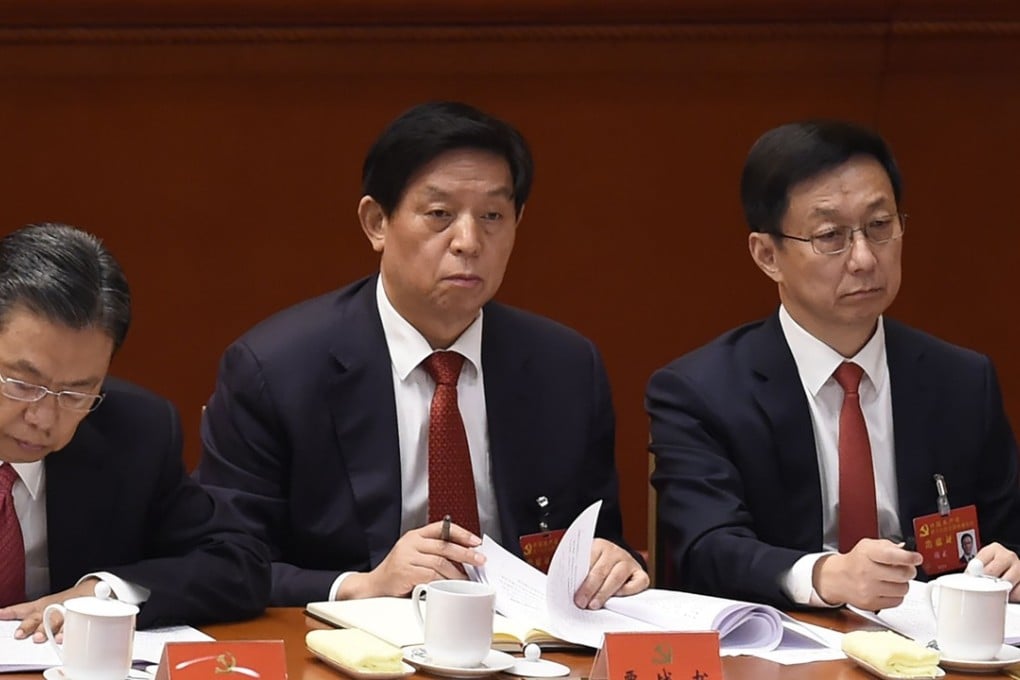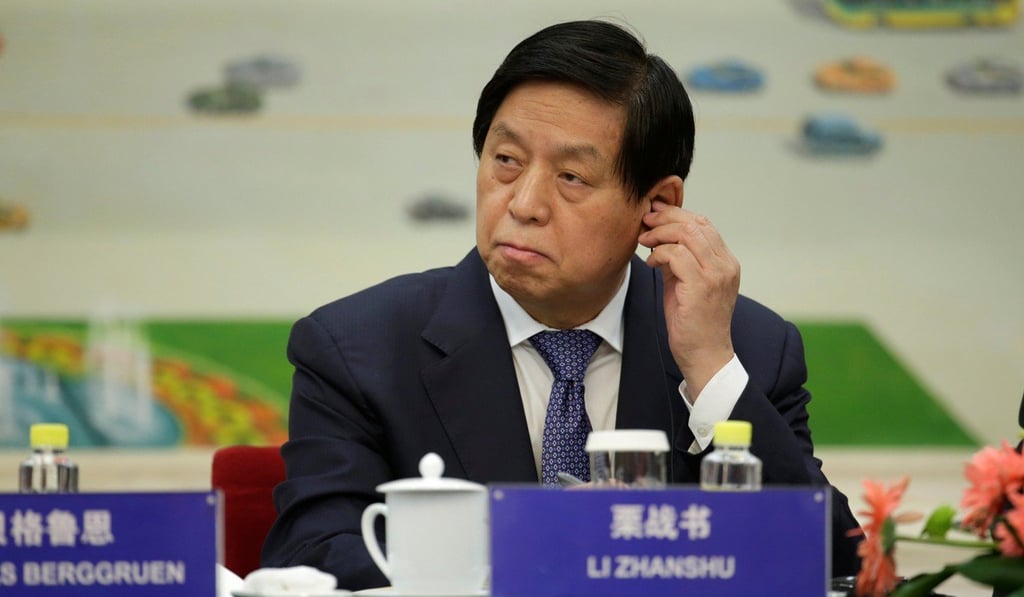Exclusive | Xi Jinping’s leadership reshuffle revealed: meet the pair poised to become two of China’s most powerful men
Key ally Li Zhanshu in line to become head of National People’s Congress, while Zhao Leji is set to succeed Wang Qishan as anti-corruption tsar

President Xi Jinping’s trusted ally Li Zhanshu stands a good chance of becoming chairman of China’s parliament while Communist Party organisation chief Zhao Leji is likely to head its corruption watchdog, sources have told the South China Morning Post.
Li is widely expected to be elevated to the Politburo Standing Committee – the ruling party’s top echelon of power – on Wednesday, a day after the party’s 19th national congress closes in Beijing. Most observers had predicted he would succeed Wang Qishan as anti-corruption tsar.
But two well-placed sources told the Post that Li would, instead, most likely head the National People’s Congress (NPC) – theoretically the highest organ of state power in China – when current chairman Zhang Dejiang retires in March. Whether Li would also take over the Hong Kong and Macau affairs portfolio currently overseen by Zhang is not clear.
“Li Zhanshu will succeed Zhang Dejiang,” a source familiar with the situation said, adding that Zhao would also be promoted into the Politburo Standing Committee and was likely to succeed Wang Qishan in leading anti-corruption work. The moves were confirmed separately by another source.

While they may come as a surprise to some, they reflect Xi’s new policy direction for the next five years laid out in his maiden party congress speech on the opening day of the congress. The president stressed the need to tighten supervision of party members and institutionalise anti-corruption work. He also highlighted the need to improve “law-based governance” by improving “the Chinese socialist system of laws” – meaning the institutionalisation of the party’s power through legislation.
